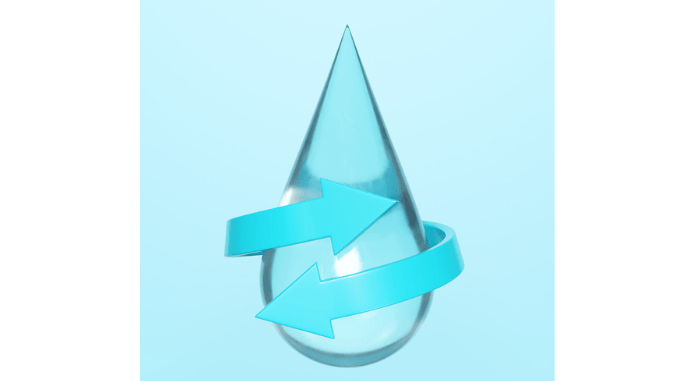
Being more eco-conscious is likely an integral part of any business plan for 2024. But with so much focus on energy efficiency and carbon output, is the risk of water waste being given adequate focus? Dealers play a crucial role in guiding customers to not only comprehend water usage in the workplace but also to implement measures aimed at significantly reducing wastage
Water, a precious natural resource, can often go unnoticed in terms of its consumption and wastage within workplaces. We all know that when we leave the lights on, it uses energy – leading to bumper bills and a less than environmentally friendly atmosphere. Similar to prioritising energy efficiency, addressing business water consumption holds immense significance. Dealers have the opportunity to educate customers about water-saving practices and offer water-efficient products, thereby aiding in cost reduction and meeting eco-expectations.
Kitchens and bathrooms
Common sources of water wastage in workplaces are often found in the kitchen and bathroom areas. For instance, during dishwashing, when individuals tend to leave taps running while rinsing utensils and cups. Outdated plumbing systems are also significant contributors to water wastage, with old fixtures potentially leaking up to 20 gallons of water daily. Dealers play a crucial role in assisting customers in identifying areas where upgrading or replacing fixtures can lead to long-term cost savings. This may involve recommending the installation of modern, water-efficient fixtures in toilet and bathroom facilities, such as automatic or sensor taps. Dealers can also guide customers towards products that have eco-settings built into their functionality to help them keep track of what is being used and technology such as smart water meter systems, which can detect and pinpoint issues within the system and shut them down to prevent leak damage.
Preventative maintenance
Mitigating water waste in the workplace often requires proactive maintenance efforts from customers, presenting dealers with an opportunity to offer solutions that tackle these issues proactively. For instance, dealers can provide products like pipe lagging or insulation jackets for water tanks and boilers that customers can easily install themselves. By doing so, customers can prevent damage caused by frozen pipes, particularly crucial during winter months. This is particularly significant considering that the Association of British Insurers (ABI) estimates that insurance claims for burst pipes can escalate to approximately £7,500 during freezing weather conditions!
Upgrade your cleaning products
Maintaining health and hygiene standards in the workplace is paramount for curbing the spread of contaminants and reducing absenteeism due to illness. While water plays a key role in this, steering customers toward water-efficient products can significantly diminish their consumption. For instance, transitioning to more eco-friendly dishwashers and laundry equipment can yield substantial water savings in the long run.
Businesses might also want to consider moving away from pre-diluted cleaning products, which require frequent replacement, to concentrated cleaning solutions that can be diluted with water as required and have a longer lifespan. Adopting concentrated cleaning products offers additional advantages to customers, including reduced storage space requirements.
It is clear that just as with products that emphasise energy efficiency, dealers play a pivotal role in guiding customers to understand and address water wastage in the workplace. By offering water-efficient products and promoting good maintenance, dealers can help businesses achieve cost savings, meet environmental goals, and contribute to a sustainable future.


Be the first to comment